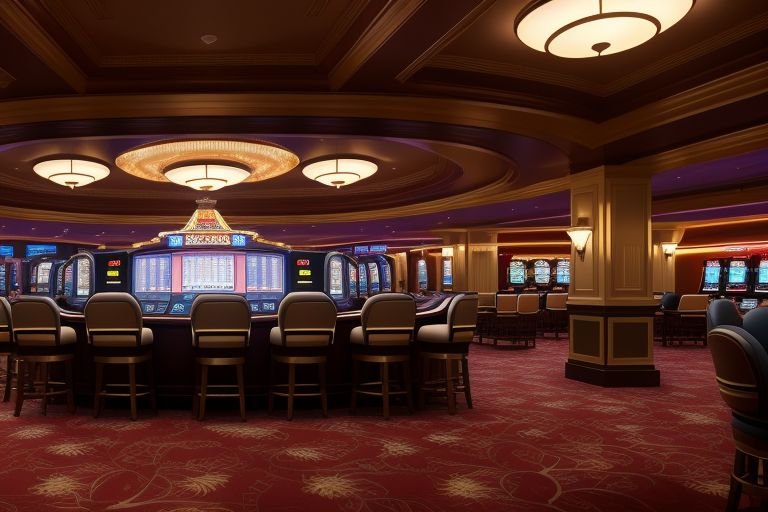Macau, the world’s largest gambling hub, is taking a bold step into the future with the widespread adoption of artificial intelligence (AI) technologies across its casino floors. In a move that promises to revolutionize both security measures and the overall player experience, major casino operators in the Special Administrative Region have announced significant investments in AI-powered systems.
The Macau Gaming Inspection and Coordination Bureau (DICJ) has given its stamp of approval to these AI initiatives, viewing them as a crucial step in modernizing the industry and maintaining Macau’s competitive edge in the global gaming market. The new technologies are expected to be fully implemented in all major casinos by the end of the year.
At the forefront of this AI revolution is facial recognition technology, which is being deployed to enhance security and combat fraud. Advanced cameras and machine learning algorithms will be able to identify known cheaters and problem gamblers, alerting security personnel in real-time. This system is also expected to streamline the entry process for VIP players, allowing for quicker access to exclusive gaming areas.
Galaxy Entertainment Group, one of Macau’s largest casino operators, has been at the forefront of AI adoption. The company’s Chief Technology Officer, Dr. Wei Zhang, explained the benefits of the new system: “Our AI-powered facial recognition not only improves security but also allows us to provide a more personalized experience for our guests. The system can recognize returning players and tailor offerings based on their preferences and playing history.”
Beyond security applications, AI is being utilized to optimize casino operations and enhance the gaming experience. Machine learning algorithms are being employed to analyze vast amounts of data on player behavior, allowing casinos to adjust their floor layouts, game mix, and staffing levels in real-time to maximize efficiency and player satisfaction.
One of the most exciting applications of AI in Macau’s casinos is in the realm of personalized gaming experiences. AI-powered recommendation systems will suggest games and betting options based on a player’s history and preferences. Additionally, virtual assistants are being developed to provide real-time guidance and support to players, answering questions about game rules, odds, and casino amenities in multiple languages.
The integration of AI technologies is not limited to the gaming floor. Hotels within the casino resorts are also leveraging AI to enhance guest services. Chatbots and voice-activated assistants in hotel rooms can handle everything from room service orders to concierge requests, providing a seamless and efficient experience for guests.
While the adoption of AI in Macau’s casinos has been largely welcomed by industry insiders and regulators, it has also raised some concerns about privacy and data protection. To address these issues, the DICJ has implemented strict guidelines on data collection, storage, and usage. Casinos are required to obtain explicit consent from players before collecting and analyzing their personal data, and all information must be stored securely with stringent access controls.
Dr. Stanley Ho, a professor of computer science at the University of Macau and consultant on the AI implementation project, emphasized the importance of responsible AI use: “We’re working closely with casino operators to ensure that these technologies are deployed ethically and with full transparency. The goal is to enhance the gaming experience while respecting individual privacy and promoting responsible gambling practices.”
The adoption of AI in Macau’s casinos is also expected to have significant economic implications. Industry analysts predict that the increased efficiency and enhanced player experiences will help drive growth in the region’s gaming revenue, which has been recovering steadily since the lifting of COVID-19 restrictions.
Morgan Stanley gaming analyst Praveen Choudhary commented on the potential impact: “The integration of AI technologies could be a game-changer for Macau’s casino industry. We expect to see increased player engagement, longer average playing times, and potentially higher per-capita spending as a result of these personalized experiences.”
The AI revolution in Macau’s casinos is also creating new job opportunities in the technology sector. Casino operators are actively recruiting data scientists, machine learning engineers, and AI specialists to develop and maintain these cutting-edge systems. This influx of tech talent is expected to further diversify Macau’s economy and establish the region as a hub for AI innovation in the gaming industry.
As Macau’s casinos embrace artificial intelligence, the eyes of the global gaming industry are watching closely. The success of these AI initiatives could set a new standard for casino operations worldwide, potentially influencing regulations and technology adoption in other major gambling destinations.
With the promise of enhanced security, personalized experiences, and increased operational efficiency, the integration of AI in Macau’s casinos represents a significant leap forward for the industry. As these technologies continue to evolve and mature, they may well shape the future of gambling for years to come.


